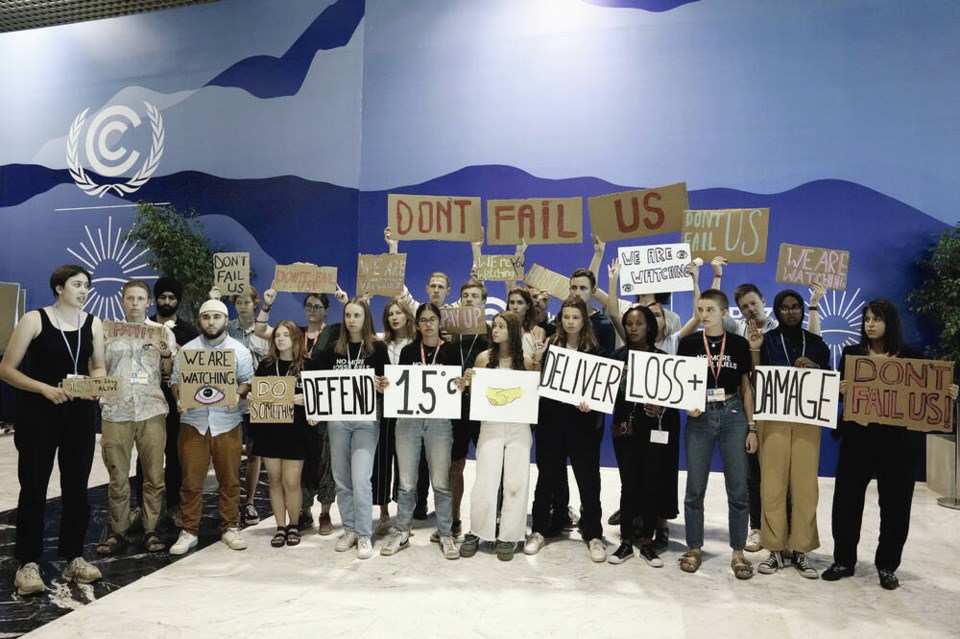Although I intended to continue my examination of Earth For All, the astounding hypocrisy of the world’s political leaders, including our prime minister, with respect to climate change cannot go unchallenged. So I will return to the Earth for All report later.
Last week, COP27 ended with agreement by all the countries in the world on the Sharm el-Sheikh Implementation Plan. The good news is that it includes, finally, an agreement to establish a “loss and damage” fund through which the high-income countries will provide funding and technical support to developing countries damaged by climate change.
The bad news is that, yet again, the agreement does not include any mention of actually reducing fossil fuel production or use. In fact, yet again, a COP agreement barely mentions the ‘F’ words – fossil fuels. Writing in The Guardian on Nov. 9, George Monbiot stated: “I’ve worked through every final agreement produced by the summits since they began. Fossil fuels are named in only six of them. Just one hints at using less overall,” adding “not one of them suggests extracting less.”
In the more than 4,000 words of the Sharm el-Sheikh document, the words “fossil fuels” appear just once, and only in the context of a phase-out of inefficient fossil-fuel subsidies — something Canada committed to do in 2009, but has yet to even define, never mind remove, the International Institute for Sustainable Development reported in June.
There is no reference at all to oil or natural gas and just one reference to coal, in the context of the “phasedown of unabated coalpower,” meaning coal power that does not have carbon capture and storage technology. As Chris Hatch observed, writing for the National Observer last week: “Governments cannot name the cause of the problem.”
I guess we can see why there was such a large presence of fossil fuel industries at the conference, including at the Canadian pavilion. They were there to ensure that yet again the fossil fuel industry would be exempt from scrutiny, never mind action to constrain the industry. But surely the fossil fuel industry, with the obscene level of windfall profits they have made this year on the back of the Russian war on Ukraine, should be required to contribute to the loss and damage fund?
Canada does not come out of COP smelling of roses. Justin Trudeau could not even summon the interest to attend. Perhaps he just wanted to avoid embarrassment, given that Canada was ranked 55th out of 60 countries by the independent German-based Climate Change Performance Index, scoring “very low” on controlling greenhouse gas emissions and use of renewables, and ranked last on energy use per capita.
Canada’s hypocrisy has been evident for some time, as shown by this headline from the Washington Post on June 18, 2019: “On Monday, Canada declared a ‘climate emergency.’ On Tuesday, it approved a pipeline expansion” — the Trans Mountain Pipeline expansion, to be precise. The article noted that “Trudeau … pledged that every dollar earned from the pipeline will be used to fund projects to power Canada’s transition to clean energy.”
So to get to clean energy, we have to dig up and export dirty oil from the Alberta tar sands, conveniently washing our hands of responsibility because some other country uses it, adding to their carbon emissions, but not ours. Hardly ethical, is it? In fact, it sounds to me like an addict: I’m going to stop, really I am — just one more drink/cigarette/toke, then I’ll stop.
Then there is the issue of Canada actually expanding production, in the face of the blunt statement by United Nations Secretary-General Antonio Guterres in April that “investing in new fossil fuels infrastructure is moral and economic madness.” Yet Canada ranks fifth in the world in approving new oil and gas expansion in 2022, according to Investing in Disaster, a new report from Oil Change International. But it is worse than that, because “the tally only includes projects where companies have made final investment decisions — so projects like Bay du Nord don’t show up … even though the government has given its approval,” reports Chris Hatch.
No wonder Mr. Trudeau did not want to be at COP27.
Dr. Trevor Hancock is a retired professor and senior scholar at the University of Victoria’s School of Public Health and Social Policy.
>>> To comment on this article, write a letter to the editor: [email protected]



